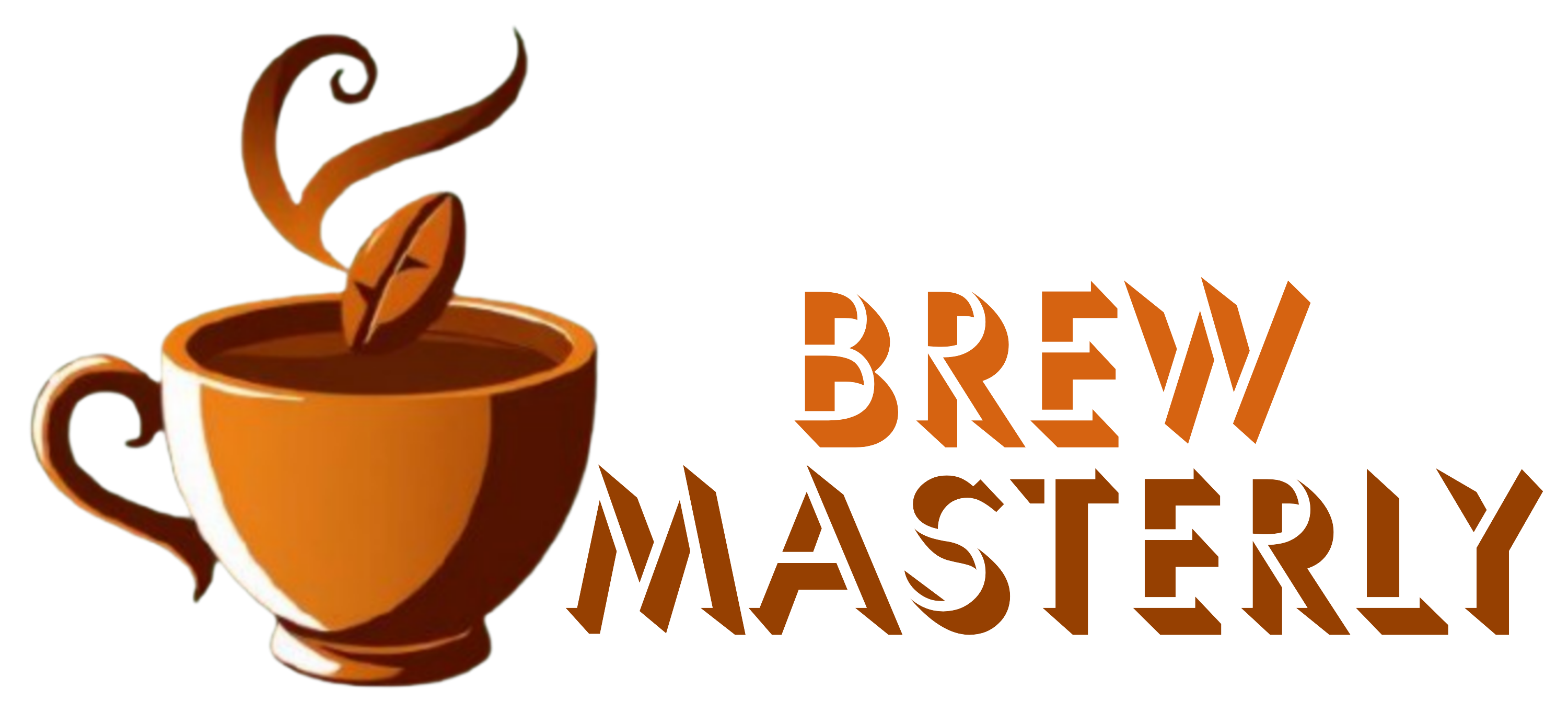In hotels, restaurants, bars, and other hospitality venues around the world, coffee accounts for a significant portion of sales. Traditionally speaking, however, these hospitality businesses have served low-quality coffee with little focus on flavour, brewing methods, or sustainability.
But coffee is integral to the customer or guest experience. A recent US survey found that 60% of people said high-quality coffee was an important part of their hotel or holiday rental stay, with 50% admitting to packing their own coffee in case the available products didn’t meet their expectations.
As the specialty coffee market continues to grow, its influence can be felt in the wider hospitality industry. Now more than ever, hotels are paying close attention to their coffee offerings to elevate the guest experience and meet the growing demand for better-quality options.
To find out more, I spoke to Naji Sourati, co-founder of Mattina Artisan Roastery, for his insight on how specialty coffee is redefining quality standards in hotels.
You may also like our article on why coffee shops need to prioritise hospitality in an era of convenience.
Why more hotels need to prioritise higher-quality coffee
Whether enjoyed in a dining area or as part of in-room service, coffee plays a huge role in shaping a hotel guest’s overall experience.
Despite this, some still provide low-quality options, including instant coffee sachets or poorly prepared espresso and filter coffee. A study by UCC Coffee found that 75% of hotel guests rated coffee offerings as “poor” or “average”, with a third also saying that a bad coffee experience would make them less likely to return.
This presents a clear opportunity for hotels to invest in their coffee programmes to improve the overall guest experience and increase customer satisfaction.
In addition to selling directly to customers, Mattina Artisan Roastery – a specialty coffee roaster in Dubai, United Arab Emirates – also supplies coffee to hotels and other hospitality venues.
“The overall customer experience in a hotel is not restricted to one aspect or product,” Naji says. “It’s many factors, like whether they slept well or if the food was good. Coffee is one of these touch points that customers will remember, especially if it is bad, and they will be vocal about it.
“Coffee is a regular daily drink for many people,” he adds. “If guests don’t have a good cup of coffee in the morning, they will notice, and they may not return.”
Naji tells me that many hotels have recently switched to in-room capsule machines in an attempt to elevate their coffee offerings. He points out, however, that while they are convenient, they don’t always result in the experience that customers want.
“Capsules can’t provide the same level of quality or flavour that espresso, filter coffee, or pour over can,” he says.
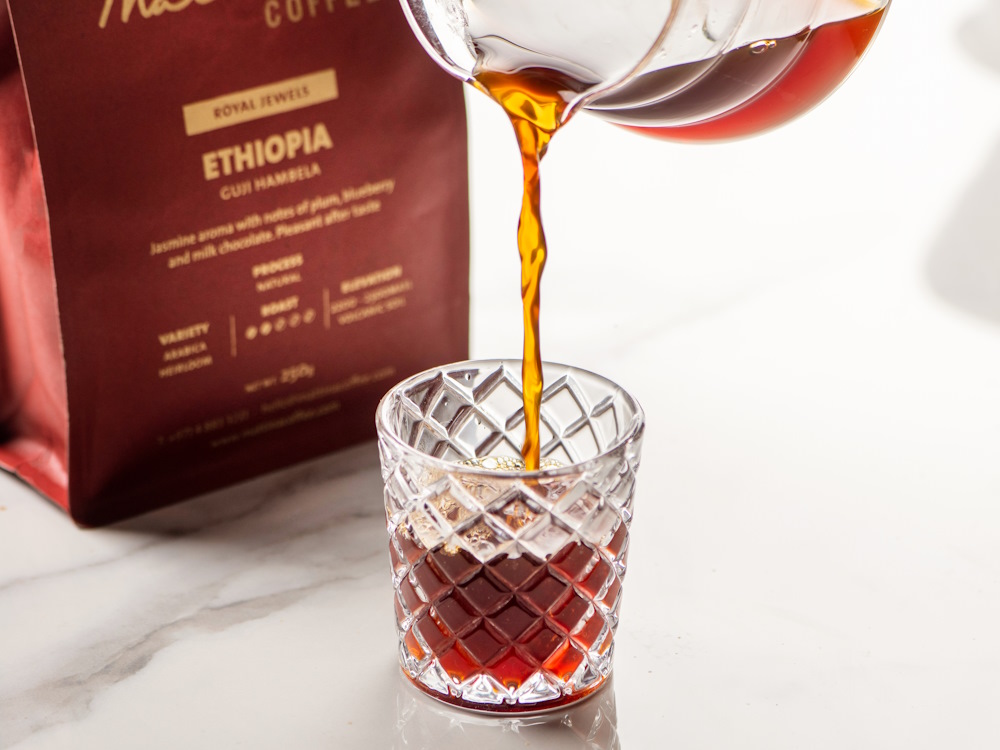
Increased competition from cafés
Without high-quality in-room, dining area, or lobby coffee offerings, hotel guests are likely to either bring their own or visit other businesses. As the number of specialty coffee shops and roasters rises in big cities around the world, customers have more and more options to choose from.
This is a huge missed opportunity for hotels to generate more sales. Given that food and business costs are still near record highs, investing in higher-quality coffee is an effective strategy to diversify revenue and improve customer retention.
In turn, a growing number of hotels are developing more intentional coffee programmes, especially in their lobbies, to bring in new customers and guests.
“We’ve seen some hotels successfully turn their lobbies into cafés,” Naji says, emphasising that this has been most noticeable in the UAE market. The country is a major tourist destination with one of the most developed specialty coffee markets in the Middle East.
“The market is evolving over time, and in the hotel segment in the region, competition is becoming intense,” he tells me. He notes that many hotel lobby cafés in Dubai now offer a wide range of specialty coffee options to cater to different customer preferences.
For example, Mattina Artisan Roastery supplies hotels with specialty coffee for various brewing methods, such as cold brew, filter, espresso, V-Drip coffee bags for pour over brewing, and single origin brew-in-a-bag options.

Higher-quality hotel coffee offerings across the board
Improving coffee options at a hotel is a multifaceted challenge. Businesses must tailor and align their offerings for all settings – in rooms, lobbies, and dining areas – to succeed.
“Serving coffee requires a different approach when in rooms vs in the lobby or at breakfast,” Naji says.
He explains that some hotels now include lobby cafés staffed by professional baristas. This enhances the customer experience, as guests can interact with baristas and learn more about specialty coffee.
“Meanwhile, hotels typically use fully-automatic machines at the breakfast area,” Naji says. “It’s a totally different experience for both customers and the business. You press one button, and the machine does everything.
“Many fully or super-automatic machines offer precise control over several extraction variables, including dose, yield, time, temperature, grind size, flow rate, and pressure, helping to maintain coffee quality and flavour,” he adds.
Elevating the in-room coffee experience can often be the most challenging aspect of developing a new coffee programme, as guests must prepare drinks themselves.
“In today’s specialty coffee market, there are many convenient single-serve products available so guests can prepare fresh coffee in their rooms,” Naji explains. He says that Mattina’s V-Drip bags can be brewed with hot water alone, without the need for equipment such as a grinder, filter, or scale.
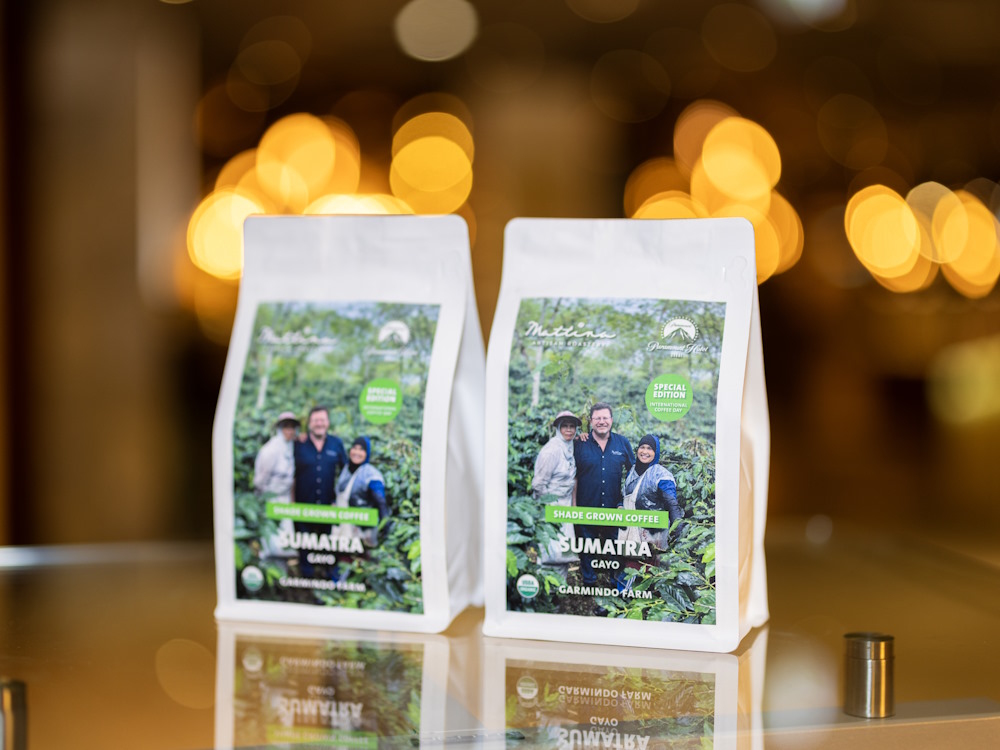
Sustainability is another concern
As coffee consumers increasingly prioritise sustainability in their purchasing decisions, they expect hospitality businesses to match their level of commitment. According to PwC’s 2024 Voice of the Consumer survey, 46% of respondents said they buy more sustainable products and are willing to pay around 9% more for goods that offer traceability and transparency.
For hotels, partnering with trusted wholesale suppliers who can provide this level of information is crucial. Naji says Mattina Artisan Roastery works closely with producers on various projects, including growing certified USDA organic, Fair Trade, shade-grown, carbon neutral, and Rainforest Alliance coffee.
The roaster also runs several social responsibility initiatives, including the Colombian Quindio Women’s Coffee Project, which is in collaboration with the International Women’s Coffee Alliance and supports female coffee producers in receiving a higher price for their beans.
Beyond sourcing sustainable coffee, hotels can also implement effective waste management systems, such as reusable to-go cup schemes and reducing single-use plastic waste.
As part of Mattina’s Sustainable Coffee Projects, the roaster provides tailored solutions to help customers enhance their ESG ratings while simultaneously promoting awareness about the sustainable challenges that the coffee industry faces. Through these initiatives, the roaster works to inspire meaningful action and drive change towards a more sustainable and responsible coffee industry.
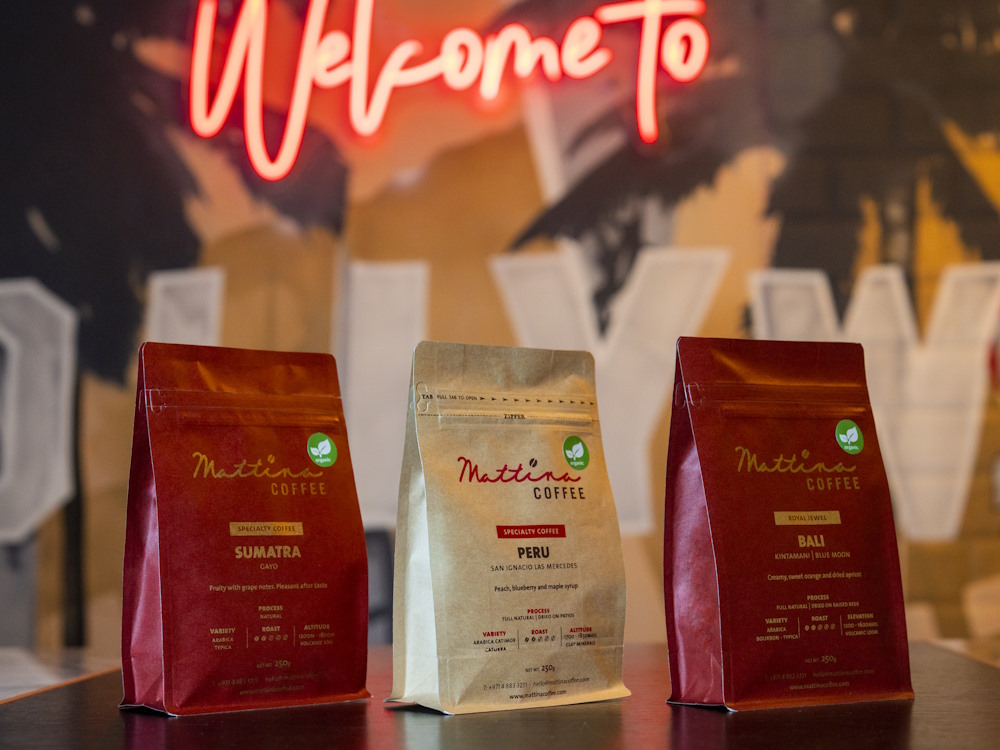
How hotels can improve their coffee service
There are many ways hotels and hospitality businesses can elevate their coffee experience. First and foremost, buying high-quality coffee is essential, which means working with a consistent and reliable wholesale supplier.
Offering a wide variety of options is also important to meet a diverse range of consumer preferences. “It’s helpful to have a standard coffee but then also offer seasonal coffees,” Naji explains. “In the colder months, you can serve coffee that has more chocolate and nutty flavours, and then switch to fruiter coffees in warmer months.”
At the same time, he points out that hotels still need to manage their costs effectively. While lobby cafés tend to charge for drinks, breakfast coffee is usually free with unlimited refills, which requires a different approach to balance margins.
“Hotels must pay attention to costs and profitability,” he notes. “They need to find the right coffee that is high quality but also economical for their business model.”
Training and investing in equipment
Naji emphasises that a successful hotel coffee programme goes beyond just having excellent coffee – it’s also about how it’s prepared and served.
Hotels must invest in high-quality equipment, such as batch brewers and espresso machines, for lobby cafés. However, even the best equipment won’t deliver great results without proper staff training on how to use it. In-house baristas and staff need to know how to prepare a range of drinks to a consistently high standard.
Larger-sized hotels in particular also benefit from investing in super-automatic coffee machines for their breakfast offerings.
“Some of the hotels we supply have over 1,200 rooms, so when they are at full capacity, they need equipment that can keep up with high demand,” Naji explains. This places significant pressure on both machines and staff, so investing in premium equipment and strategically placing machines in the breakfast area can reduce queues and wait times.
Moreover, serving large volumes of coffee daily means regular equipment maintenance is essential. Naji adds that Mattina Artisan Roastery offers a one-stop-shop solution for hospitality businesses wanting to improve their coffee offerings, including staff training as part of its Coffee Academy UAE, equipment distribution, and ongoing technical support.
“We assist with the entire process, including roasting, packaging, delivering orders to maintain stock, and flavour consistency,” he says.
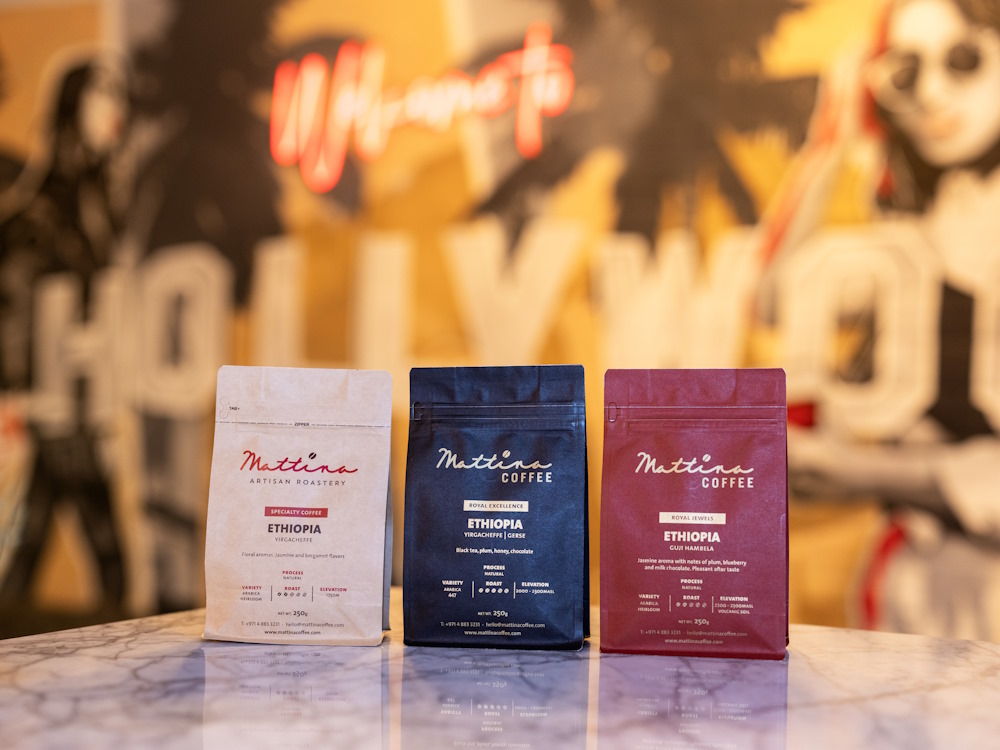
As specialty coffee becomes more popular, it will continue to influence trends in the wider hospitality industry. With more consumers aware of coffee quality and flavour, demand for higher-quality options in hotels and other venues will steadily increase.
To tap into this burgeoning market, hotels can partner with established roasters and wholesale suppliers. That way, they receive excellent coffee, premium equipment, and ongoing support to find success.
Enjoyed this? Then read our article on why super-automatics will help specialty coffee become more accessible.
Photo credits: Mattina Artisan Roastery
Perfect Daily Grind
Please note: Mattina Artisan Roastery is a sponsor of Perfect Daily Grind.
Want to read more articles like this? Sign up for our newsletter!
The post How specialty coffee has raised the bar in the hospitality industry appeared first on Perfect Daily Grind.
